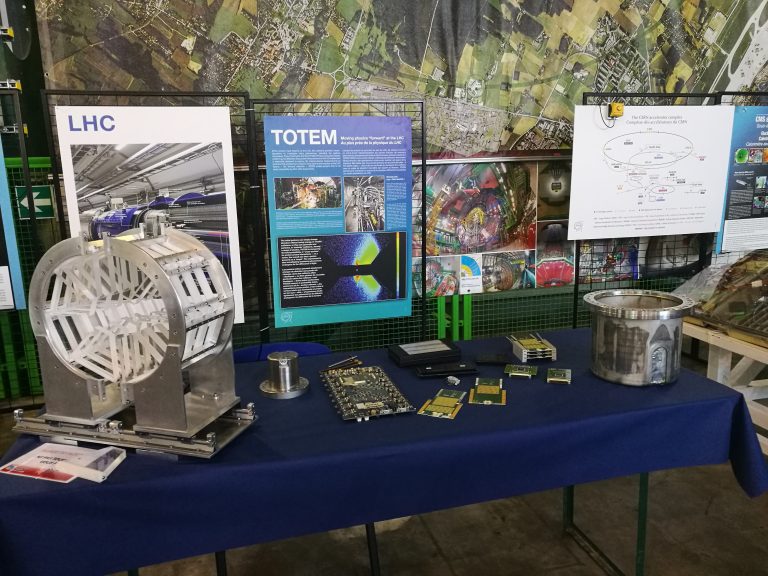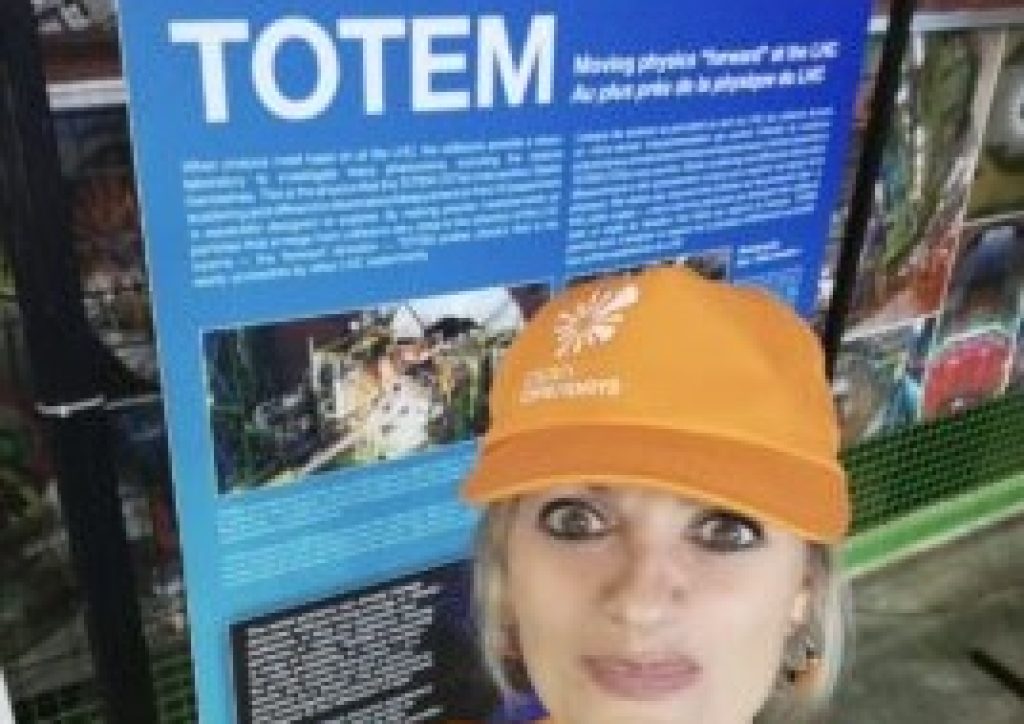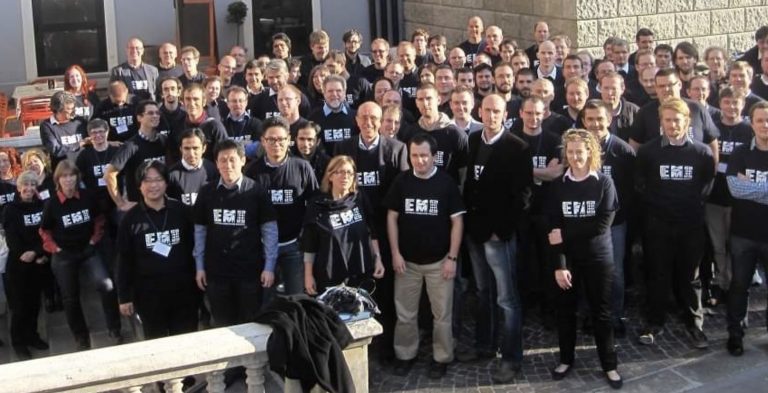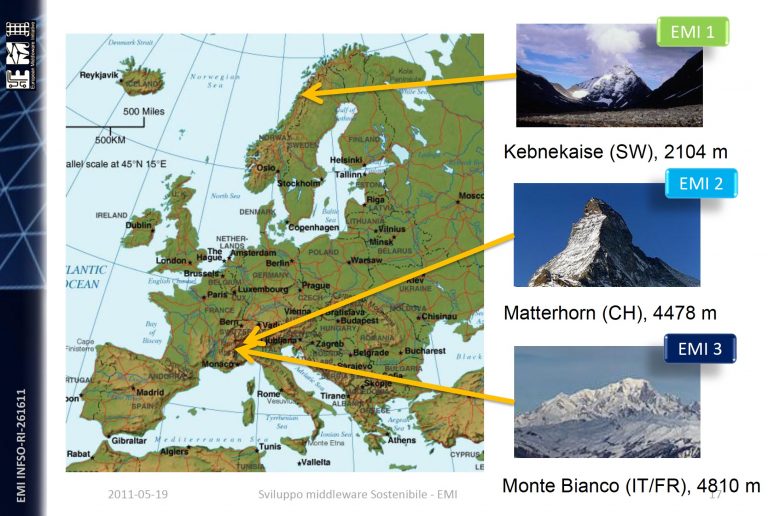The TOTEM experiment at the Large Hadron Collider (LHC)
Most of the LHC experiments are on a grand scale, however, TOTEM‘s (TOTal cross section, Elastic scattering and diffraction dissociation Measurement at the Large Hadron Collider – LHC)’s characteristic is its extension over 440 meters (even if its three sub-detectors are not longer than 3 meters); but despite reduced dimensions, its grand potential resides in making some unique observations.
TOTEM’s physics program is dedicated to the precise measurement of the proton-proton interaction cross section, as well as to the in-depth study of the proton structure which is still poorly understood. The study of the physics processes in the region very close to the particles beam (forward region) is complementary to the programs of the LHC general-purpose experiments and requires appropriate detectors.
The TOTEM Collaboration had to invest heavily in the design of sophisticated detectors characterized by a high acceptance for particles produced in that very busy region. All the detectors of the experimental apparatus will detect charged particles emitted by the proton-proton collisions in the IP5 interaction point and will have trigger capabilities that will allow an online selection of specific events.
To know more:
- TOTEM collaboration prepares to explore new territories in forward physics
- TOTEM and DØ collaborations announce odderon discovery Odderon discovery
- TOTEM and DØ : the discovery of the Odderon
- Particle Physicists Confirm Existence of Odderon
- Discovery of the Odderon particle
- A small experiment with a vast amount of potential
- Homage to Endel Lippmaa, distinguished scientist and politician
- TOTEM Masterclass at CWRU
- Una partita a quark
- CMS Control Room: a perfect venue for Friday night!
- Taking a closer look at LHC – TOTEM
The Solar Hydrothermal Advanced Reactor Project (SHARP)
Proper treatment of biological wastes can recover valuable nutrients and energy while neutralizing potentially polluting contaminants and pathogens. In particular, hydrothermal processes have emerged as a promising way to derive highenergy fuels and high quality fertilizers process from organic matter, and especially wet biowaste. However, since biomass is often produced in contexts lacking the energy sources, chemicals, and technology needed for proper local treatment, and haul costs to a remote treatment facility are prohibitive, these materials are left unutilized as waste, or even as a hazard.
Solar energy offers the potential for an off-grid decentralized heat source, but most solar thermal collectors cannot achieve the temperatures needed for hydrothermal digestion. The SHARP project is a pilot which aims to explore the niche of off-grid solar-driven hydrothermal processes…While the initial installation is intended to characterize the operating characteristics and viability of operation using different feed stocks and operating conditions, the intention is texplore the socio-technical, economic, and energetic factors that would allow scaling solar-hydrothermal systems to broader utility in developing country settings…SHARP is a collaboration between Ben Gurion University of the Negev in Israel and CERN.
To know more:
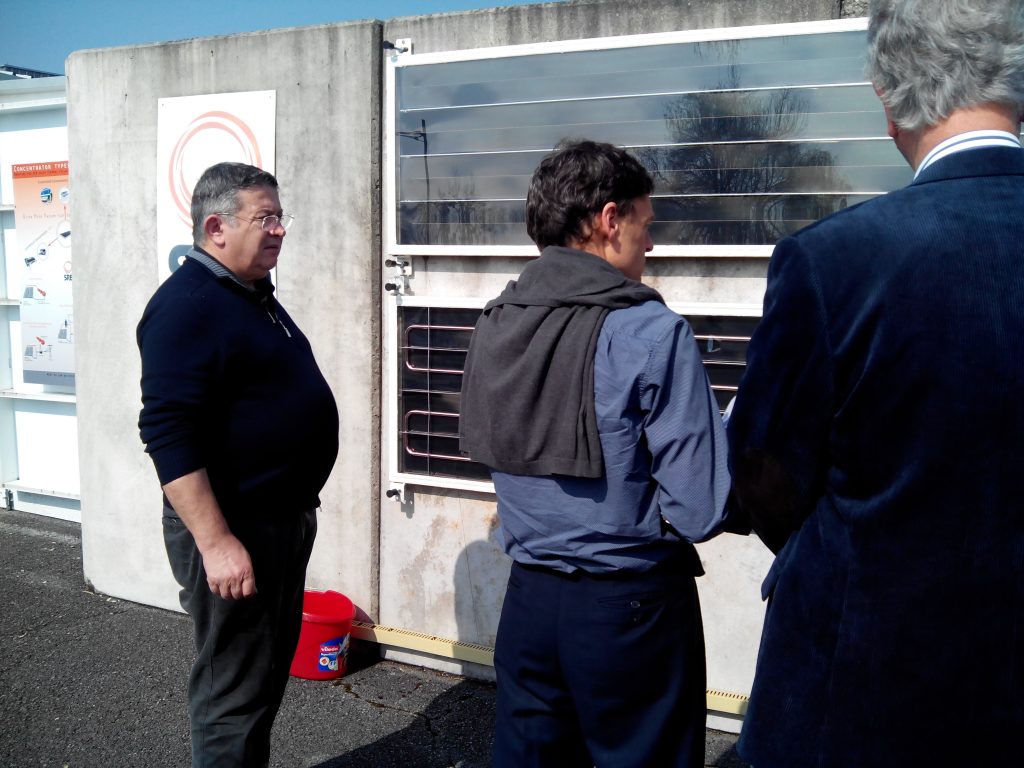
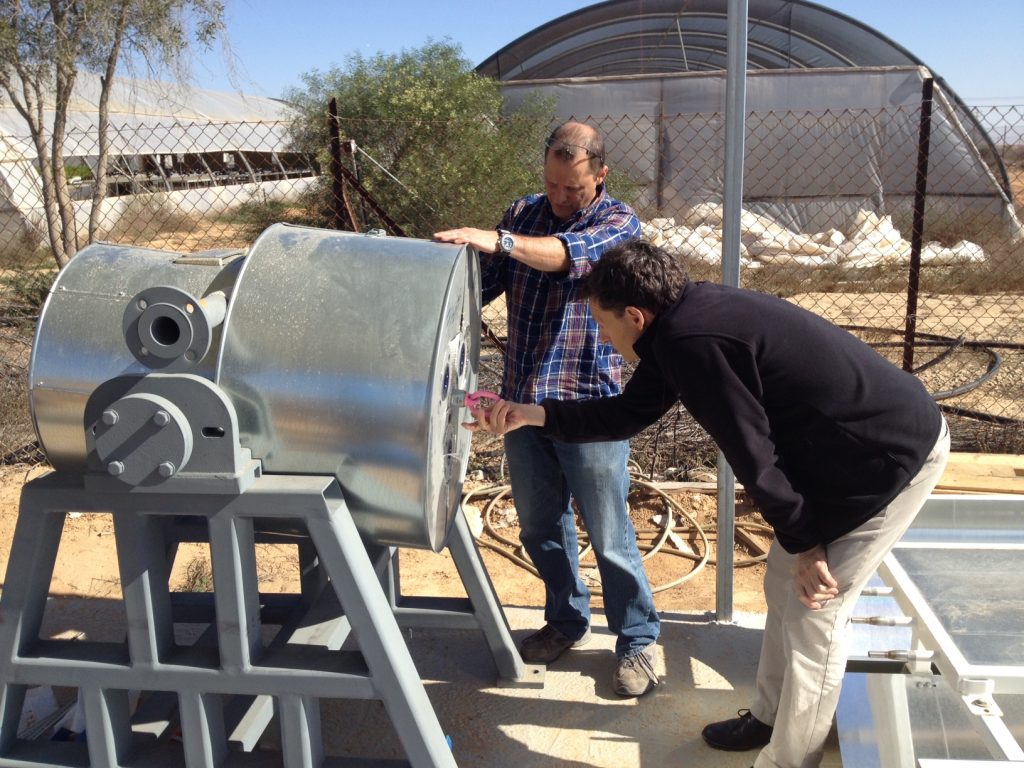
The European Middleware Initiative (EMI)
The European Middleware Initiative EMI is a computer software platform for high performance distributed computing. It is developed and distributed directly by the EMI project.
It is the base for other grid middleware distributions used by scientific research communities and distributed computing infrastructures all over the world especially in Europe, South America and Asia. EMI supports broad scientific experiments and initiatives, such as the Worldwide LHC Computing Grid (WLCG).
The EMI middleware is a cooperation among three general purpose grid platforms, the Advanced Resource Connector (ARC), gLite and UNiform Interface to COmputing Resources (UNICORE) and the dCache storage software.
To know more:
- The SciencePAD treasure hunt of persistent identifiers
- Les identificateurs permanents SciencePAD : pour des recherches fructueuses
- Knowledge and Technology Transfer on the EMI (or better Science PAD) spot
- The first SciencePAD workshop @ CERN
- Many visitors at SC’ 12 for EMI
- Meet EMI among the brightest HPC minds at SC’12
- Budapest, 31 October 2021: 5th EMI All Hands Meeting
- Science gateways on the spot at EGI Technical Forum
- Good news goes on at the EGI Technical Forum
- The EGI Technical Forum 2021 is taking place at the Clarion Congress Hotel in Prague
- @EMI all hands meeting: EMI 2 is almost ready!
- EMI & IGE: “together we stand, divided we fall”…
- EGI Community Forum Tuesday
- EMI enters the FutureGrid era
- On the Higgs boson’s track: Grid computing and EMI empower a step forward in fundamental knowledge


